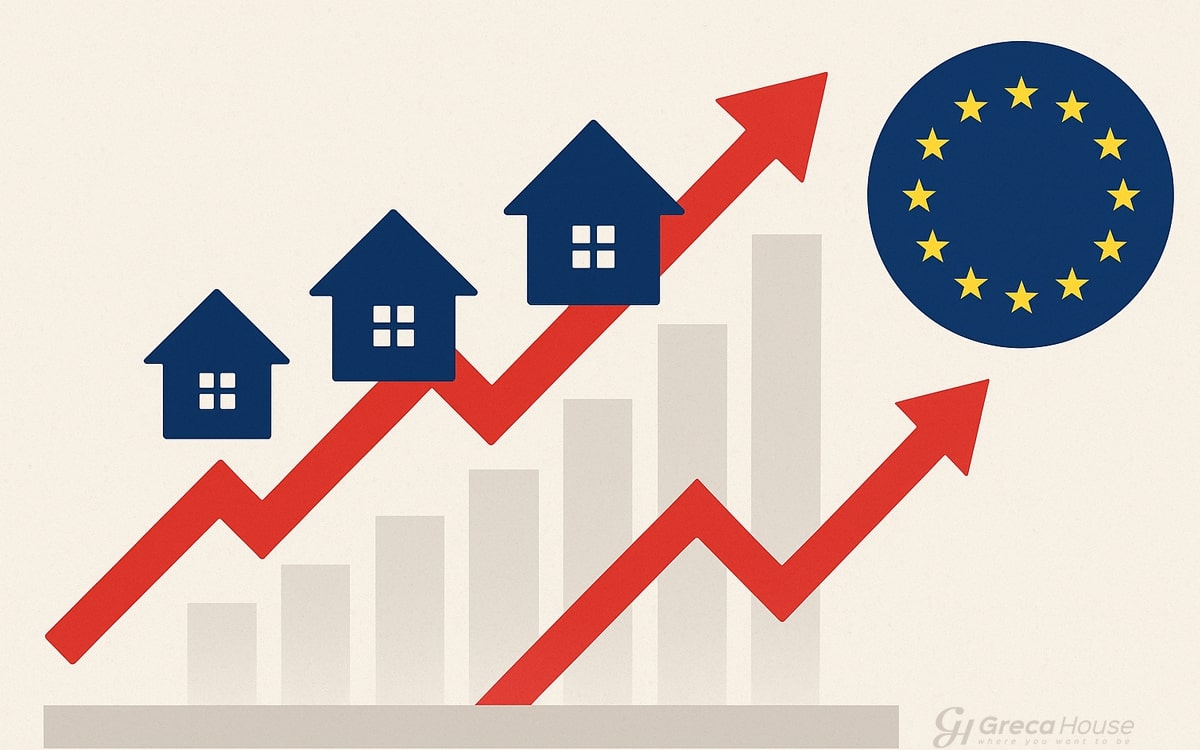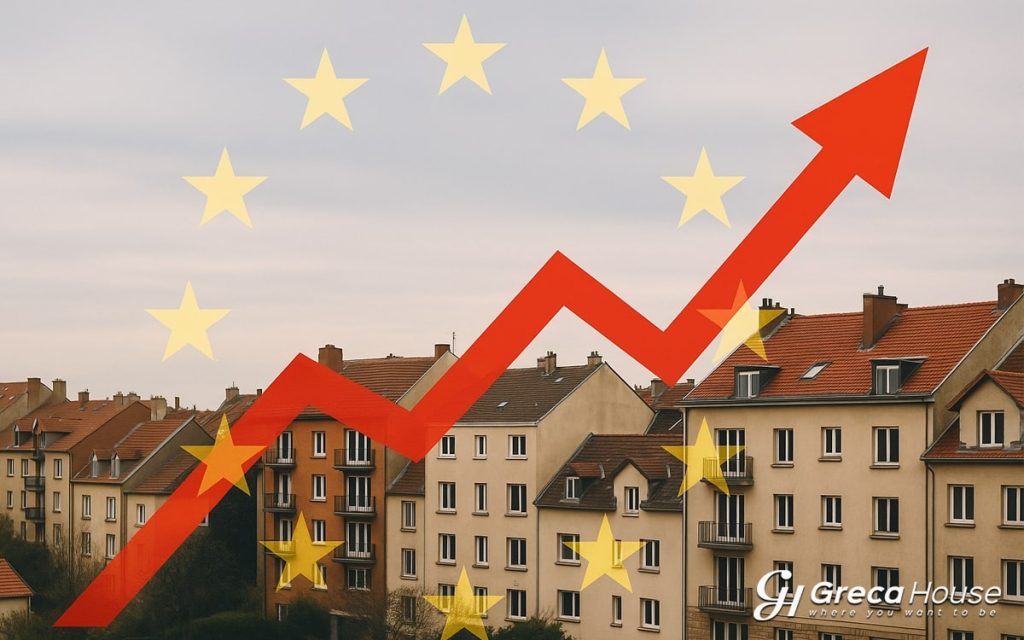The Real Estate in Europe market has returned to the centre of attention as new reports reveal that residential property prices in several countries have grown far beyond their underlying economic fundamentals. According to official data from the European Commission, overvaluation has become a growing concern for investors, households and governments, particularly in countries such as Portugal, the Netherlands, Luxembourg and Greece.
The Broader Picture in Real Estate in Europe
The latest European Commission report titled “Housing in the European Union: Market Developments, Underlying Drivers and Policy Responses” shows that property prices across the EU have risen by an average of 50% between 2014 and 2024. In some countries, such as Hungary, Poland, Lithuania and Portugal, price increases have exceeded 200%, signalling a clear disconnect between property values and household purchasing power.
The highest level of overvaluation is recorded in Portugal, where the estimated deviation from real value exceeds 35%. Luxembourg, the Netherlands, Austria, the Czech Republic, Sweden and Greece also show signs of overvaluation ranging between 10% and 20%.
What Drives Property Prices Higher
Price increases stem from a combination of structural and market-related factors:
- Investor demand: An influx of both domestic and international investors has intensified competition for properties in key urban markets.
- Short-term rentals: Platforms such as Airbnb have reduced the supply of long-term rental housing.
- Limited construction activity: In many countries, new residential development has not kept pace with demand.
- High interest rates: Elevated borrowing costs make homeownership less accessible for first-time buyers, pushing more people into renting.
Even after mild corrections in some parts of Europe, prices remain well above equilibrium levels, raising questions about market resilience in the event of a broader economic downturn.

The Situation in the Greek Property Market
Real Estate in Greece has seen a marked surge in property values over the past five years, particularly in Athens and high-demand tourist destinations. The rise is largely driven by:
- A rebound in demand from domestic buyers.
- Renewed interest from Greeks living abroad.
- A strong wave of foreign investors who make use of the Greek Golden Visa program or purchase homes for tourism-based returns.
The European Commission places Greece in the 10%–20% overvaluation range, prompting concerns over long-term affordability and sustainability if broader macroeconomic conditions change.
Areas Under the Strongest Price Pressure
The most intense pressure in residential properties is observed in central Athens as well as the affluent northern and southern suburbs. Thessaloniki is also experiencing a consistent upward trend, while demand in destinations such as Santorini, Mykonos and Corfu continues to exceed available supply. Structural underbuilding and the absence of long-term rental policy frameworks highlight the market’s fragility.
Is There a “Bubble”?
Although describing the situation as a “housing bubble” may be premature, overvaluation across multiple EU markets has created legitimate concern. Price declines are not guaranteed, but the example of Sweden and Luxembourg — where prices have fallen by up to 20% in the past two years, shows that correction is possible when high debt levels and financial tightening intersect.
In Greece, the limited supply of new housing and the high share of unused or inactive properties often act as a buffer, preventing sharp downward price adjustments.
What Buyers and Investors Should Consider
Prospective buyers should carefully assess:
• The true value of the area
• Rental or utilisation prospects
• Infrastructure and planning developments
• The legal and town-planning status of the property
For investors, clear ownership titles, regulatory compliance and long-term yield potential should form the basis of their decision-making.
Conclusion for Real Estate in Europe
The European housing market is navigating a phase of realignment, with several countries showing clear signs of overvaluation. In Greece, the picture is more nuanced. Price increases reflect genuine demand dynamics, yet affordability challenges are becoming more visible.
Going forward, balanced housing policies aimed at increasing supply and restoring accessibility will be key. Greca House Real Estate Agency continues to monitor market trends and provides guidance to both buyers and investors seeking opportunities with stable long-term value in Greece.
If you are looking for high-quality properties with solid fundamentals and reliable returns, feel free to contact us for tailored assistance.


